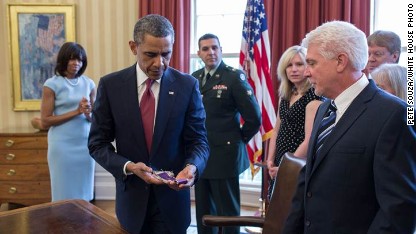1ST READING - Acts 14:21-27
21 After Paul and Barnabas had proclaimed the Good News to that city and made a considerable number of disciples, they returned to Lystra and to Iconium and to Antioch. 22 They strengthened the spirits of the disciples and exhorted them to persevere in the faith, saying, “It is necessary for us to undergo many hardships to enter the Kingdom of God.” 23They appointed elders for them in each church and, with prayer and fasting, commended them to the Lord in whom they had put their faith. 24 Then they traveled through Pisidia and reached Pamphylia. 25 After proclaiming the word at Perga they went down to Attalia. 26 From there they sailed to Antioch, where they had been commended to the grace of God for the work they had now accomplished. 27 And when they arrived, they called the church together and reported what God had done with them and how he had opened the door of faith to the Gentiles.
P S A L M - Psalm 145:8-9, 10-11, 12-13
R: I will praise your name forever, my king and my God.
8 The Lord is gracious and merciful, slow to anger and of great kindness. 9 The Lord is good to all and compassionate toward all his works. (R) 10 Let all your works give you thanks, O Lord, and let your faithful ones bless you. 11 Let them discourse of the glory of your kingdom and speak of your might. (R) 12 Let them make known your might to the children of Adam, and the glorious splendor of your kingdom. 13 Your kingdom is a kingdom for all ages, and your dominion endures through all generations. (R)
2nd READING - Revelation 21:1-5
1 Then I, John, saw a new heaven and a new earth. The former heaven and the former earth had passed away, and the sea was no more. 2 I also saw the Holy City, a new Jerusalem, coming down out of heaven from God, prepared as a bride adorned for her husband. 3 I heard a loud voice from the throne saying, “Behold, God’s dwelling is with the human race. He will dwell with them and they will be his people and God himself will always be with them as their God. 4 He will wipe every tear from their eyes, and there shall be no more death or mourning, wailing or pain, for the old order has passed away.” 5 The One who sat on the throne said, “Behold, I make all things new.”
GOSPEL ACCLAMATION
I give you a new commandment, says the Lord: love one another as I have loved you.
John 13:31-33, 34-35
31 When Judas had left, Jesus said, “Now is the Son of Man glorified, and God is glorified in him. 32 If God is glorified in him, God will also glorify him in himself, and he will glorify him at once. 33 My children, I will be with you only a little while longer. 34 I give you a new commandment: love one another. As I have loved you, so you also should love one another. 35This is how all will know that you are my disciples, if you have love for one another.”
| SABBATH | ||
LOVE: A COMMANDMENT?
I don’t know whether or not you frowned when you read today’s Gospel. Probably not, because the words of Jesus about love are so familiar. But don’t you think that the words of Jesus contradict each other? He speaks of love as a commandment. How can this be? Isn’t love something that comes naturally? Isn’t love a feeling, as most love songs tell us?
Jesus seemingly had a different understanding of love. If love is just a strong feeling, it is for a person we like or are attracted to. And that excludes the majority of people around us. The Greeks call this kind of natural attraction and feeling philia. But in our Gospel passage, Jesus does not use this Greek word but another Greek word, namely agape. It stands for a love that is a free act of the will that can be commanded. It excludes nobody, not even an enemy!
Do you think we, human beings, are so lovable that God, or Jesus, feels naturally attracted to us who constantly offend Him? But God sent His Son to save us. Jesus offered Himself on the Cross for our salvation. This did not come spontaneously. It was an act of His free will. And that’s why Jesus speaks of love as a commandment. We can and we have to command ourselves not to exclude anybody from our love. Of course, we cannot feel for an enemy or for one who has hurt us the same feeling we have for a close friend, spouse or children. So, how do we love those unlovable ones?
Fr. Nil Guillemette, S.J., makes an interesting observation when he writes that “the verb ‘to love’ is used 62 times in the Gospels, whereas the noun ‘love’ is used only nine times.” In other words, he writes, “the verb is used seven times more than the noun. Which means that, basically, love is a verb, it is an action, it expresses itself in deeds.”
Love is an action! If we try to do to those we consider unlovable what we would like to be done to us, we are practicing the love Jesus commanded His disciples and us.Fr. Rudy Horst, SVD
REFLECTION QUESTIONS: Do you have the love that Jesus commands? Do you command yourself to love a person who has hurt you?
Lord, how narrow is my understanding of love! Yes, it is easy to love a good person, but You want me to love even my enemy. Let me learn from You, Lord, from Your love for me, a poor sinner!
St. Peter Chanel, priest and martyr, pray for us.
Lots of surprises await. |














